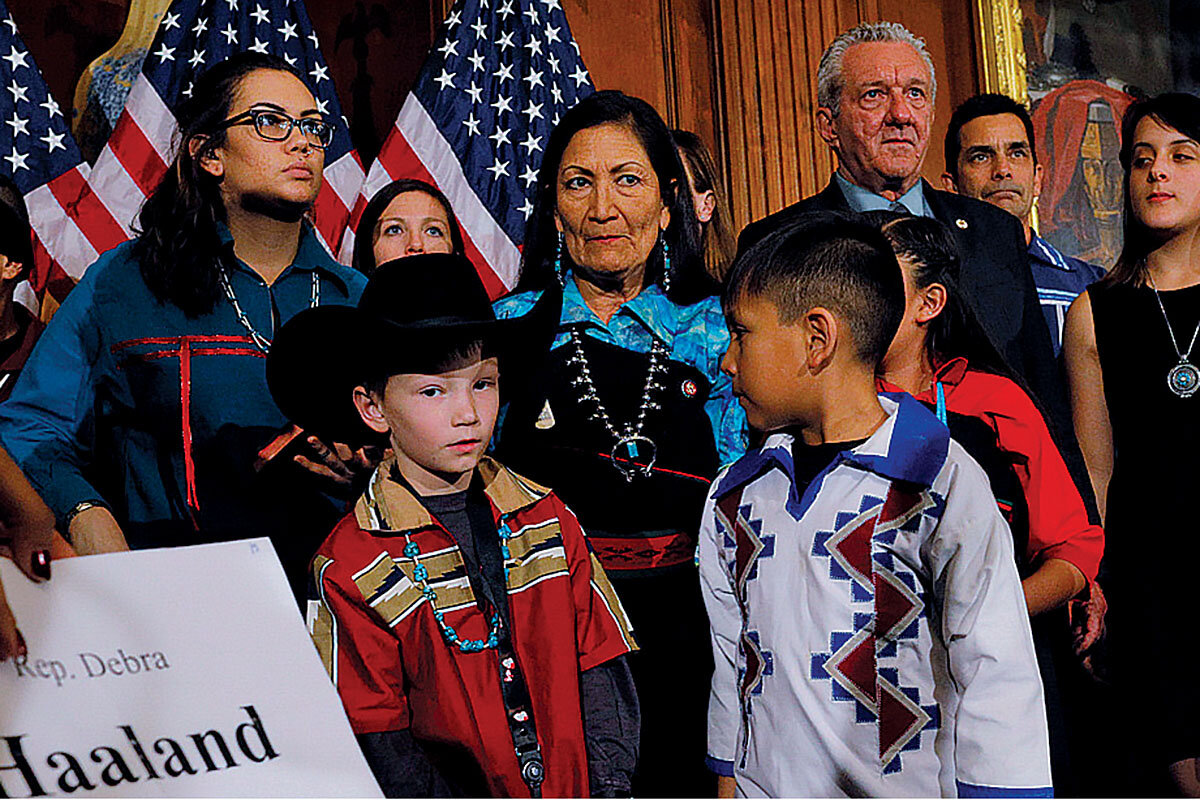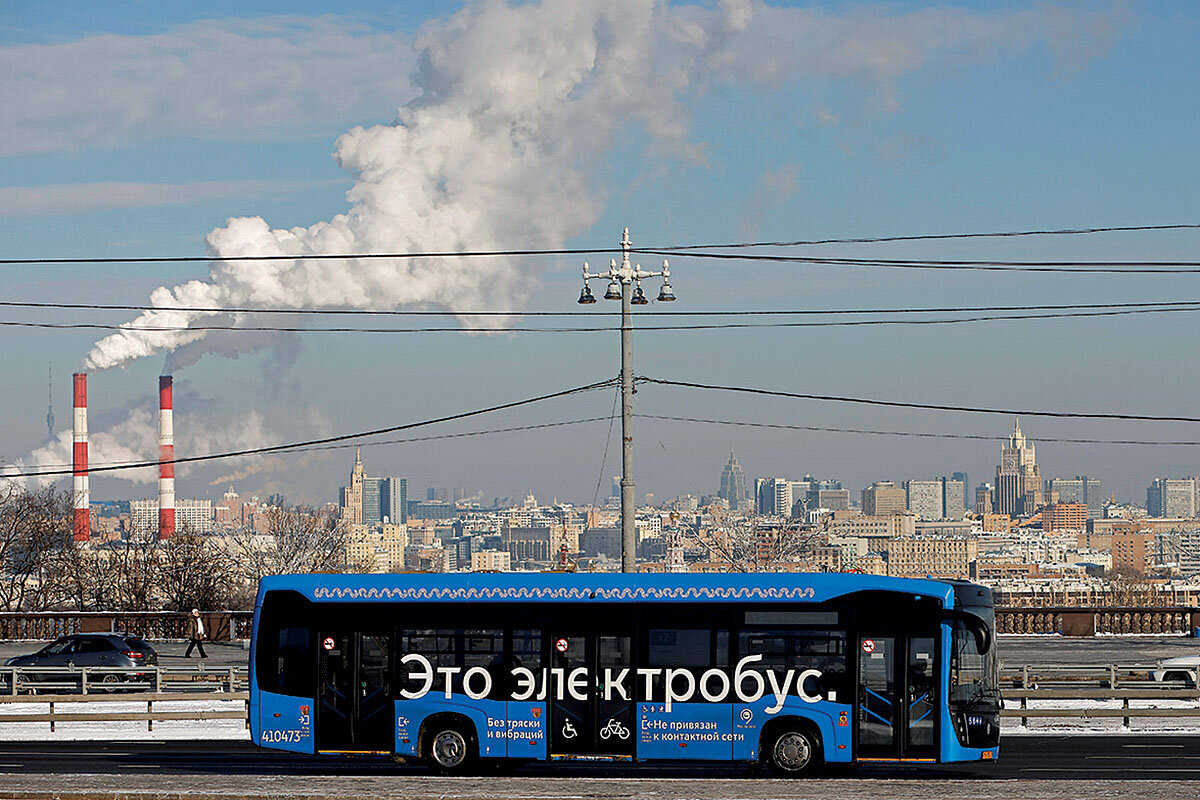From rabbits to seaweed, new laws protect animals and climate
Loading...
1. United States
Virginia has joined three other states in banning cosmetics testing on animals. Companies often test new cosmetics on rabbits, mice, and other animals to ensure they’re safe for human use. Animal advocates say these methods are cruel and unnecessary, considering all the alternative ways to test the effects of moisturizers, makeup, and other cosmetic items.
The Humane Cosmetics Act, which goes into effect Jan. 1, 2022, prohibits cosmetics companies from testing on animals and bans the sale of products tested elsewhere on animals. California, Nevada, and Illinois have similar legislation. Animal testing of cosmetics and the sale of such products are also banned in the European Union, Iceland, India, Israel, Norway, Switzerland, and the United Kingdom.
ABC News, The Hill, Humane Society
Why We Wrote This
This week’s roundup of global progress includes two women, in government and sports, who are “firsts” in their professions. Their rise spotlights both individual achievement and work left to do for racial and gender equity.
2. United States
The Senate confirmed Rep. Deb Haaland as secretary of the interior, making her the first Native American to lead a Cabinet agency. The Interior Department manages more than 450 million acres of public land, federal waters off the coast, and a massive system of dams and reservoirs in the Western United States. It also has a contentious history with the country’s Indigenous population, housing both the Bureau of Indian Affairs and the Bureau of Indian Education, which have a long track record of neglect and abuse toward Native American communities.
Ms. Haaland, who describes herself as a 35th-generation New Mexican and is an enrolled member of the Laguna Pueblo tribe, is expected to make climate change and racial justice central to her leadership of the agency. “A voice like mine has never been a Cabinet secretary or at the head of the Department of Interior,” she said on Twitter. “Growing up in my mother’s Pueblo household made me fierce. I’ll be fierce for all of us, our planet, and all of our protected land.”
The New York Times, Department of the Interior
3. United Kingdom
A new bylaw banning trawl fishing off the Sussex coastline will help protect 117 square miles of seabed and give kelp forests the chance to recover from recent degradation. At one time, these dense swaths of long seaweeds created a nursery for seahorses, lobsters, and other commercially important wildlife, and sequestered large amounts of carbon dioxide. Over the past few decades, storms, trawling, and dredging boats have nearly eliminated these vital habitats, advocates say.
Following a campaign by the Help Our Kelp partnership, with support from natural historian Sir David Attenborough and the Sussex Inshore Fisheries and Conservation Authority, the U.K. government has approved a year-round trawling ban to relieve that pressure on the ecosystem. Ocean advocates are calling the new law a win for marine conservation. “We welcome the signing of the Sussex bylaw,” said Charles Clover, executive director of the Blue Marine Foundation, “as it is a recognition by government that rewilding the sea is a way to protect marine biodiversity, invest in inshore fisheries, and store carbon at a single stroke.”
The Guardian
4. Russia
Public transit officials in Moscow have announced plans to replace all gasoline- and diesel-powered vehicles with environmentally friendly alternatives in the next decade. The road map set forth by Mosgortrans, which runs Moscow’s vast bus and tram network, will nearly quadruple the city’s electric bus fleet well ahead of that deadline.
The Russian capital began replacing old buses with green models in 2018, and Moscow says it now has the largest fleet of any European city with roughly 600 electric buses in operation. Under the new plan, authorities say they will only be purchasing electric vehicles, expanding the fleet by 400 vehicles this year, another 420 next year, and then by 855, bringing the city’s e-bus count to more than 2,000. Swapping a diesel-powered bus with an electric model removes an average 60.7 tons of CO2 emissions from the environment every year, according to Green Car Congress. Mosgortrans is also investing in more power-efficient trams.
Reuters, Green Car Congress
5. Indonesia
Small-scale fishers are increasingly utilizing digital tools to protect their livelihoods. About 90% of workers involved in capture fishing – when commercial fish are caught in a natural environment – are from household-sized operations, and about half are in developing countries, according to the United Nations’ Food and Agriculture Organization. These workers face “many challenges – from multiple marine uses, declining fish stocks, threats from overfishing – and climate change is just going to exacerbate those challenges,” said Alexis Rife of the Environmental Defense Fund. Launched by EDF in January, the Small-Scale Fisheries Resource and Collaboration Hub is a multilingual website designed to help fishers, coastal communities, and advocacy groups develop solutions together.
Fishers already use social media platforms for pricing, but the website’s low data requirements serve areas with patchy internet. One pilot project in Indonesia uses artificial intelligence to track fishing vessels and estimate catches. In Sumatra, fishers are testing an EDF app that records catches to enable them to be more sustainable.
Thomson Reuters Foundation, Food and Agriculture Organization
6. Congo
Congo has hired its first female soccer coach. Maguy Safi has been appointed to head the new women’s team of Tout Puissant Mazembe, one of the largest and most popular soccer clubs in Africa. Despite being a champion athlete and holding a degree in physical education and sports management, Ms. Safi often faced overt discrimination and sexist remarks when applying for coaching positions. But she knew from experience that the field was changing and continued to work toward her professional goals.
TP Mazembe established its women’s club to meet new requirements from FIFA and the Confederation of African Football. Although women’s soccer tournaments aren’t as developed in Congo as in other African countries, there is growing interest in the sport among young women and lots of talent, according to professionals who engage with their teams. Ms. Safi hopes to continue breaking down stereotypes about women in soccer, and eventually coach a national team.
Radio France Internationale










